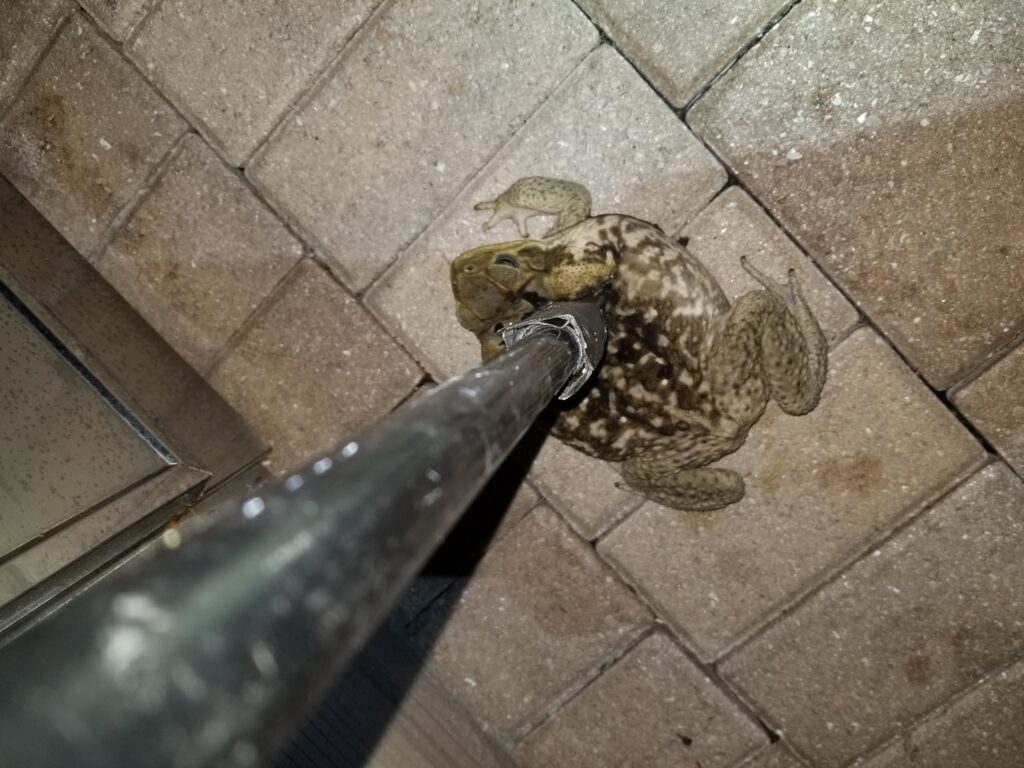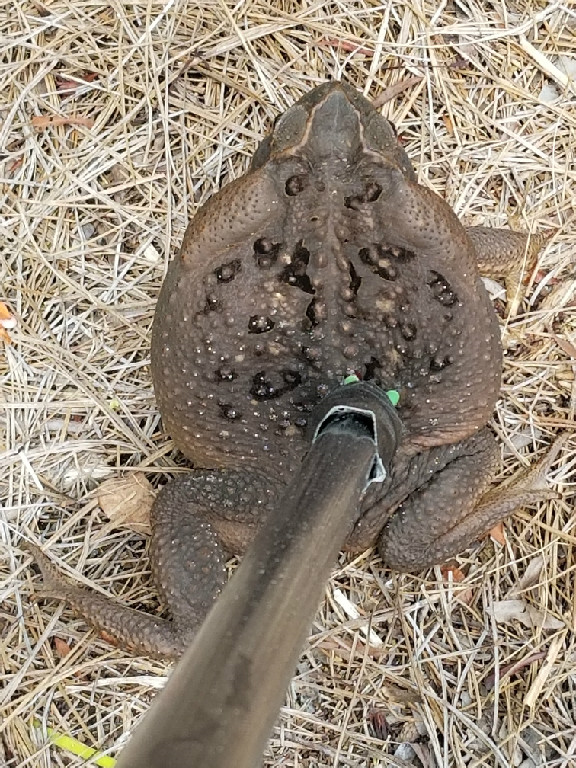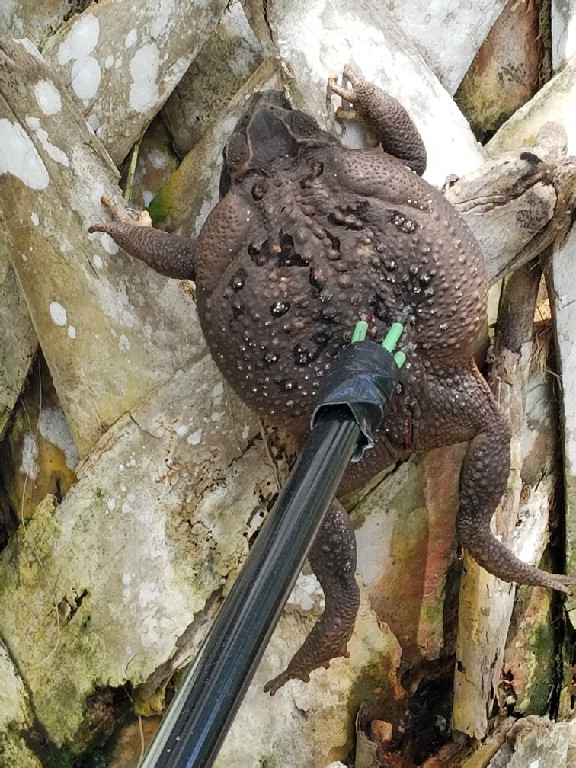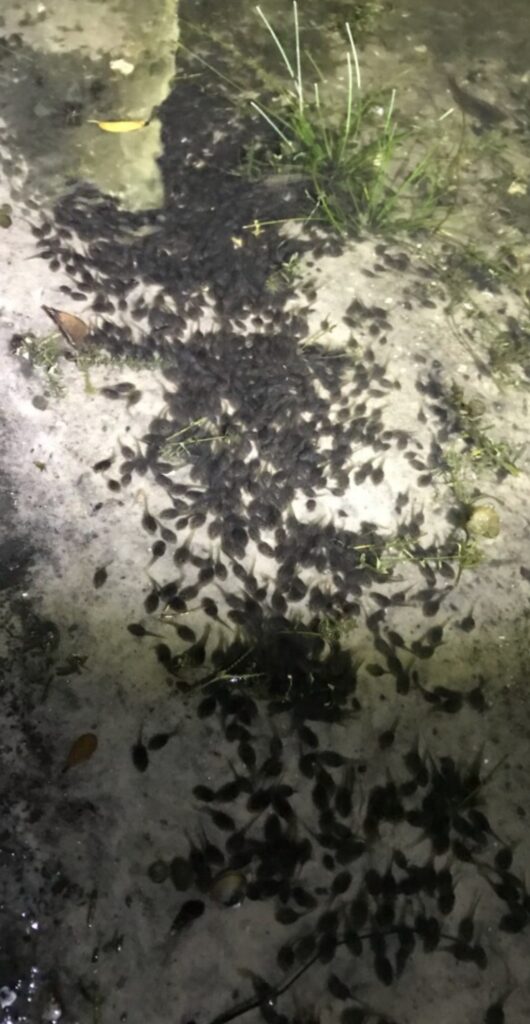
Cane Toads: (Rhinella Marina)
INVASIVE SPECIES
Cane toads, also known as Bufo toad, the marine toad or the giant toad; is part of the bufunidae family. Cane toads are usually between 4 to 6 inches long. Cane toad were formerly know as Bufo Marinus. They are an invasive species to Florida. Remember any toad over 4 inches is not native to Florida. The cane was interduce from South Africa
Their bodies are tan to reddish-brown, dark brown, or gray; back is marked with dark spots. Skin is warty. Large, triangular parotoid glands are prominent on the shoulders; parotoid glands of native “true” toads are oval. Unlike native southern toad, they DO NOT have ridges or “crests” on top of the head.
Cane toads are found throughout found in areas of Central and South Florida, including Key West and Stock Island, and in an isolated population in Bay County in the panhandle. Found predominantly in urbanized habitats and agricultural lands, but also in some natural areas, including floodplain and mangrove swamps.
Cane toads breed in the vegetated edges of any available freshwater habitat, including ponds (natural and manmade), lakes, canals, and ditches. Cane toads breed between March through September. They lay eggs in long strings that are virtually indistinguishable from Florida’s true native toads.
Cane toad feed on beetles, centipedes, crabs, millipedes, roaches, scorpions, spiders, and other invertebrates; also frogs, small reptiles, small birds, and small mammals.
The impact cane toads have on Florida is because they prey on native frogs, lizards, snakes, small mammals, and just about anything else that fits into their mouths. They are harming Florida’s populations of native species.
Cane Toads have a toxin that can irritate humans skin and eyes. If your pet bites or swallows a Cane Toad, it will become sick and may die YOU MUST take it to the vet right away! Symptoms of Cane Toad poisoning in pets include excessive drooling and extremely red gums, head-shaking, crying, loss of coordination, and sometimes convulsions.
Southern Trappers hunts cane toads as there is NO pesticide, chemicals, or deterrents to use to keep your property free of them. Once the cane toads are collected, they are properly disposed of using specific guidelines. We also remove the tadpoles from lakes in efforts to decrease the ever growing population.


